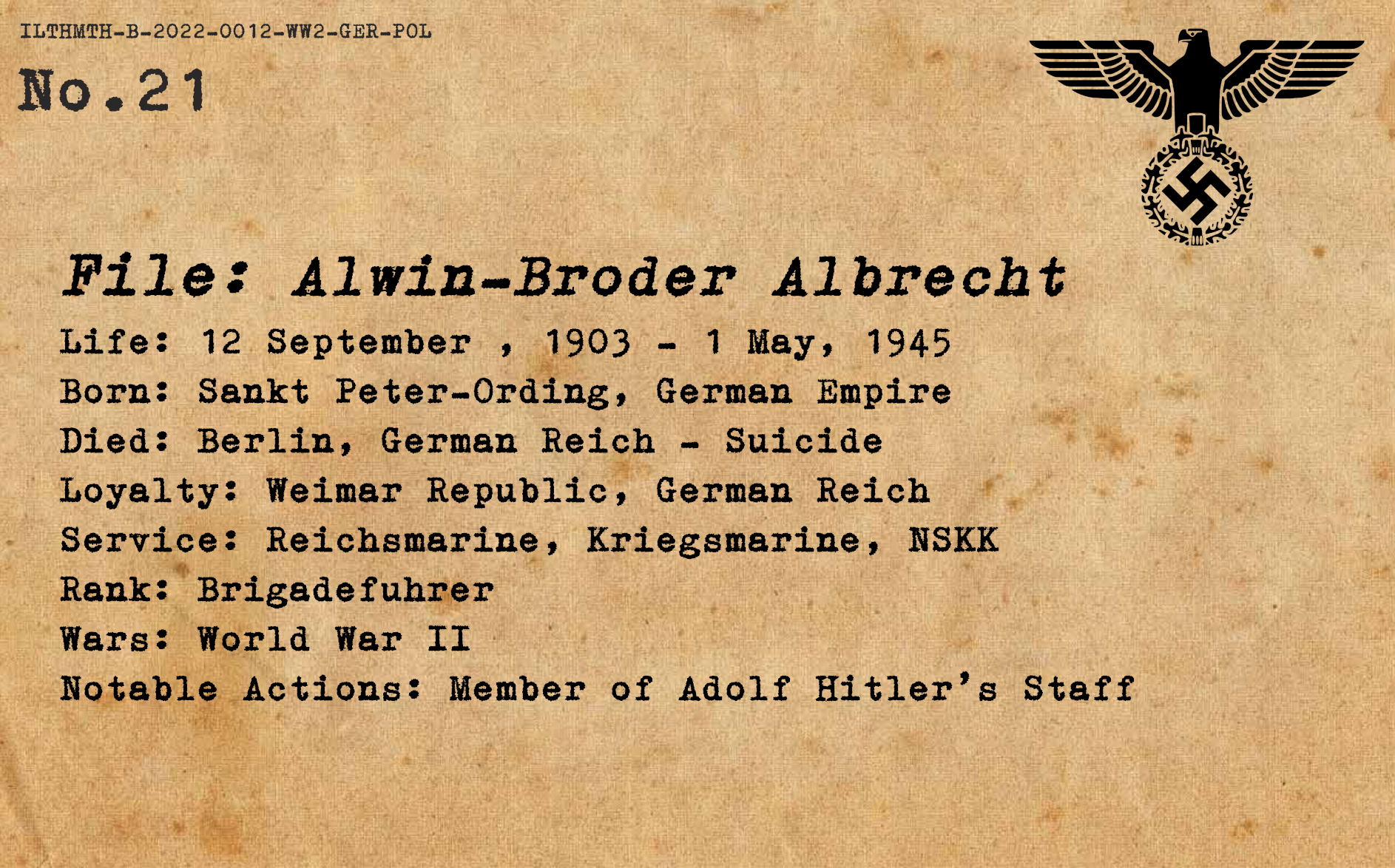Alwin-Broder Albrecht
A lesser known member of Adolf Hitler’s personal staff, Alwin-Broder Albrecht was born in 1903, and although he was too young to serve in the Great War joined the much downsized Reichsmarine in 1922 at the age of nineteen. Within two years he was assigned to the Naval Academy at Flensburg, and eventually commanded torpedo boats for some time in the early 1930s.
The German torpedo boat Grief, which Albrecht commanded for a time in the early 1930s
Little information is available on how Albrecht came into contact with Hitler, although it is entirely possible it was simply as part of his military duties. It is known that when Hitler’s Naval Adjutant, Karl von Putkammer, returned to active service to command a destroyer, Albrecht was named as his replacement. Albrecht, by now a Korvettenkapitain (Lt. Commander), would serve in this post for just over a year, in the pivotal period between 1938 and 1939 as the outbreak of the Second World War loomed.
Hitler with senior officers and staff during the military parade for his 50th birthday in 1939. Albrecht can be seen behind Hitler, facing the camera and wearing a white Kriegsmarine cap
In 1939 Albrecht married, and this was to spell the end of his naval career. The woman in question had an unsavory history (the details of this remain unknown), and this led to Grand Admiral Erich Raeder, the commander of the Kriegsmarine, to make an attempt at posting him to Tokyo as an attaché. The Fuhrer, however, had grown fond of the young officer, and instead offered him a position as a permanent member of his staff, with the rank of Oberfuher (Colonel) in the NSKK (Nationalsozialistisches Kraftfahrkorps, NSKK. The Nazi Party transportation service). This purportedly even led to an argument between Hitler and the Grand Admiral, but in the Third Reich there was no going against Hitler’s will. Putkammer returned to the Naval Adjutant’s post, while Albrecht settled into his new position at the Reich Chancellery.
An SS King Tiger tank knocked out on Potsdammer Platz, near the Reichs Chancellery
Albrecht would remain in this post for the duration of the war, and survived the assassination attempt made on Hitler in 1945, as well as the following purges. By 1945 the Third Reich was on the brink of collapse, as the Soviet Red Army entered Berlin on 20 April, 1945. Albrecht would remain in the damp Fuhrerbunker under the ruined Chancellery alongside his Fuhrer until the end, when Hitler committed suicide on 30 April. The following day, 1 May, would be that last time that Albrecht appears in any record, having been witnessed defending the building along with the remnants of Hitler’s guards. According to Erna Flegel, a nurse working in the makeshift hospital set up in the adjoining basement of the bunker, Albrecht committed suicide by gunshot as SS Brigadefuhrer Wilhelm Mohnke, erstwhile commander of the defense of the building, departed with most of the survivors of Hitler’s staff to attempt a breakout of the doomed capital.




